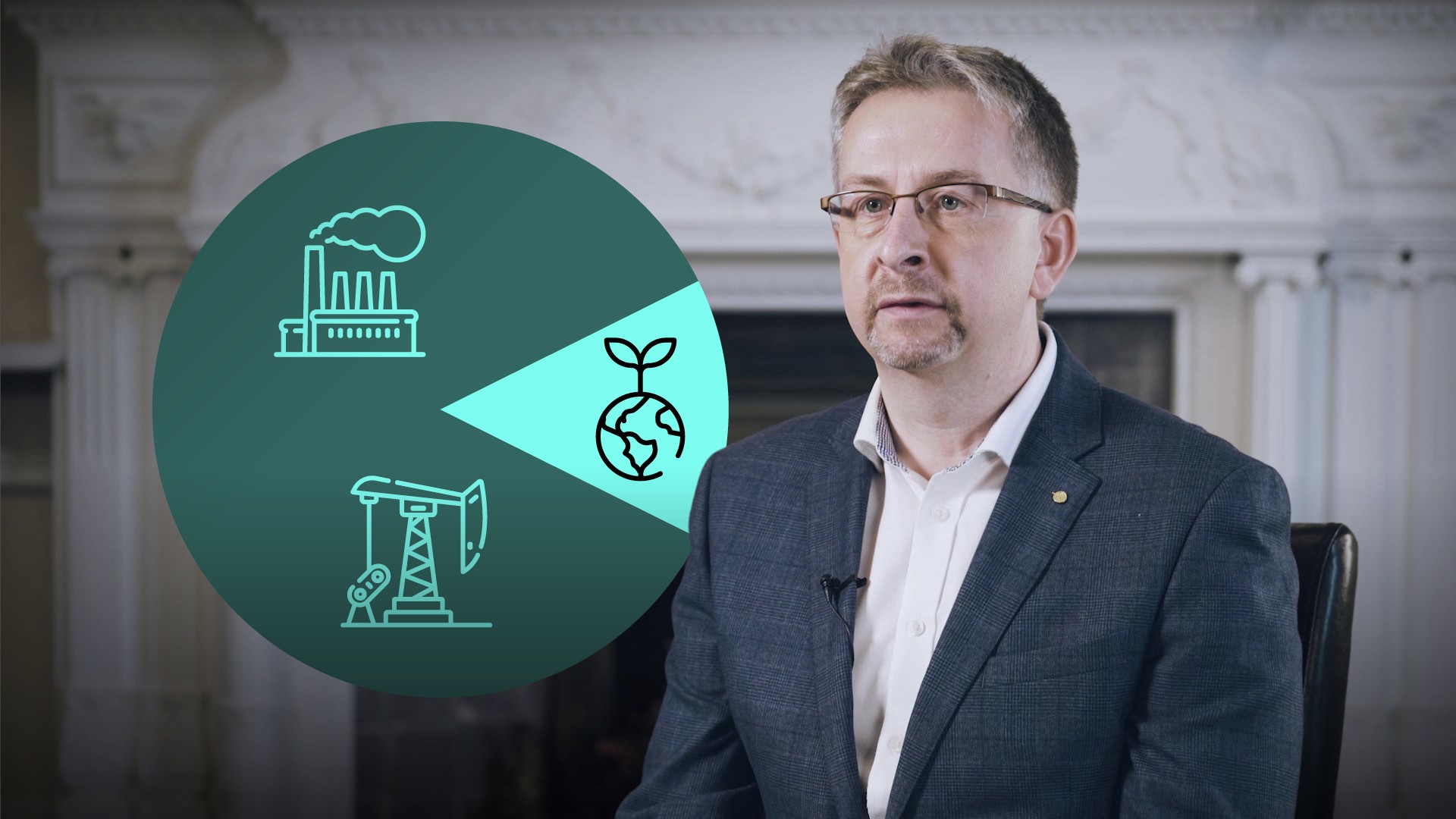
Introduction to Global Sustainable Finance Initiatives

Simon Thompson
Managing Director and Author
Regulation, in essence, defines the rules for banks, financial institutions and insurance firms at both the individual firm level - ‘microprudential’ regulation - and at the systemic level - ‘macroprudential’ regulation. In this video, Simon gives us an overview of Financial Regulation and how this is developing to enhance disclosure of climate risks and support the mainstreaming of green and sustainable finance.
Regulation, in essence, defines the rules for banks, financial institutions and insurance firms at both the individual firm level - ‘microprudential’ regulation - and at the systemic level - ‘macroprudential’ regulation. In this video, Simon gives us an overview of Financial Regulation and how this is developing to enhance disclosure of climate risks and support the mainstreaming of green and sustainable finance.
Subscribe to watch
Access this and all of the content on our platform by signing up for a 7-day free trial.

Introduction to Global Sustainable Finance Initiatives
7 mins 38 secs
Key learning objectives:
Outline how existing regulations are limited in terms of climate disclosure
Understand the key climate disclosure initiatives of the banking industry
Outline some of the market-led climate disclosure initiatives of the investment industry
Understand greenwashing and its types
Overview:
Financial regulations have a variety of goals, such as fostering competition and ensuring equal treatment of clients, which may vary across jurisdictions, but one of the most relevant and widely accepted objectives is to safeguard the stability of the financial system. Climate change is going to start affecting the stability of the financial system, so it makes sense that financial regulation needs to develop to enhance the disclosure of climate risks and support the mainstreaming of green and sustainable finance. There are a number of initiatives being developed by central banks, regulators, banks and investors in order to ensure climate risks are identified, quantified and disclosed.
Subscribe to watch
Access this and all of the content on our platform by signing up for a 7-day free trial.
Why do we need financial regulation regarding climate risks?
Greenwashing is a real risk to the long-term viability of green and sustainable finance, and to the development of green products and services in finance, and more widely. Financial regulation is required to ensure consistency and transparency in data to allow investors to compare and decide which activities to invest in and ultimately support the mainstreaming of green and sustainable finance.
How does existing regulation encourage the disclosure of climate risks?
Currently, the existing frameworks are limited when it comes to climate disclosure.
International banking regulation is overseen by the Basel Committee on Banking Supervision, the committee that sets the framework for calculating the minimum levels of capital that banks must hold. The current Basel III framework requires banks to assess the impact of specific environmental risks on their credit and operational risk exposures. However, there is no requirement under Basel III for banks to identify and disclose the risks of climate change overall, consider portfolio-wide risks, or for supervisory regimes to monitor potential macroprudential risks to financial stability arising from climate change and the transition to a low-carbon world.
On the insurance side, Solvency II sets out a new risk-based and harmonised EU-wide approach to the assessment of capital adequacy, risk management and reporting, however, the regime requires insurers to be sufficiently capitalised to withstand the losses of a 1 in 200-year event, over a one-year time horizon. Given the increasing frequency of extreme weather events, however, this may not be sufficient.
What are the key banking initiatives emerging in terms of climate disclosure?
- The Equator Principles - provide a voluntary code of conduct and risk management system for the detection, evaluation, management and monitoring of environmental and social risks in major projects in developing countries, such as energy or infrastructure projects
- The Green Bond Principles - provide voluntary guidelines established by the International Capital Markets Association urging transparency and disclosure and encouraging integrity in the Green Bond market
- The Green Bond Principles - provide a voluntary structure and standards developed by the Loan Market Association to encourage global continuity in the implementation and reporting of green loans
What are the market-led initiatives of the investment industry?
- The Institutional Investors Group on Climate Change - provide a voluntary framework and standards developed by the Loan Market Association to promote global consistency in the application and reporting of green loans
- The Portfolio Decarbonisation Coalition - aims in sending strong signals to policymakers and companies about investors’ commitment to the transition to a low-carbon economy
- Climate Action 100+ - aims to engage systemically important greenhouse gas emitters and help them improve governance on climate change, curb emissions and strengthen climate-related financial disclosures
What is the market initiative of the insurance sector?
Climate Wise has developed Principles to help members better communicate, disclose and respond to the risks and opportunities of climate change.
What is greenwashing and what are the types?
Greenwashing is making false, misleading or unsubstantiated claims about the positive environmental impact of a product, service or activity. It is a real risk to the long-term viability of green and sustainable finance, and to the development of green products and services in finance, and more widely.
The two general types of greenwashing in the organisational context are:
- Firstly - when the efforts of a firm to be ‘green’ make a small, positive difference, but that contribution is insignificant relative to the harm or damage caused by the company’s core activities.
- Secondly - when the efforts of a company to be ‘green’ are not green at all and make no difference to the environment.
Subscribe to watch
Access this and all of the content on our platform by signing up for a 7-day free trial.

Simon Thompson
There are no available Videos from "Simon Thompson"





























